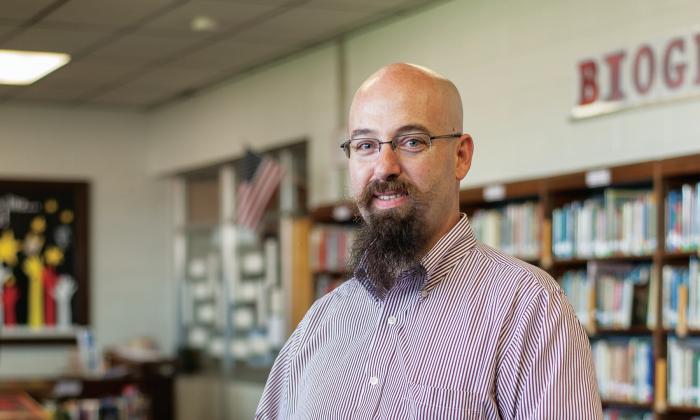I have what some might consider a bizarre assignment. Most of my day is spent teaching a class called Reading Improvement. It is our main Tier II intervention for sixth- through eighth-grade students who struggle with reading. My other course is Integrated English Language Arts and Reading Pre-AP. This course contains kids who’ve been cajoled by their parents into taking on more, kids who just naturally shine very brightly, and kids who are tagged as gifted and talented but lost their spots in the official G/T program.
My classroom is a little like Rankin/Bass’ Island of Misfit Toys. I see children all day long who, for most of their education, have in some way felt like a square peg trying desperately to fit into the round hole of academic success. Some of my kids come from homes where English is rarely, if ever, spoken. Others have a specific learning disability or a gift or talent that constitutes a learning difference and requires individualized instruction—or, at least, something different from the “norm.” Still others have simply been left behind by families or teachers who didn’t have the resources, schools that didn’t have the necessary programs, or a society that didn’t have adequate support systems to nurture their potential.
My kids come in various shades and represent belief systems that range from Southern Baptist and Buddhist to atheist. They come from affluent households, from homes where families struggle below the established poverty level, and from the very middle of the socioeconomic spectrum. My goal is to teach them all, to bring every one of them from their point of need to the highest pinnacle they can reach.
I teach to give my family, my friends and myself hope for a future surrounded by a community of capable, intelligent neighbors. I teach so that a student who had virtually no reading gains in three years of middle school can achieve a giant 19-point gain in the first half of the fourth year and eventually pass the state test (an achievement other teachers thought was impossible). I teach so that my students will struggle less in life than I did. I teach because none of the other professions I tried over the course of 15-plus years filled my spirit. Teaching pays well in that particular currency.
I want to teach students who span the broad spectrum of academic achievement. I feel that our public school systems throughout the United States often fail to meet the needs of our nation’s most struggling students and our most gifted. Private institutions have been established throughout the country to offer services that meet the needs of these two groups. There’s one institution devoted to dyslexic learners. Another caters to the gifted. And another helps with processing and developmental disabilities. Yet another is designed to meet the needs of children who are prodigies in the fine arts. In public school, though, educators are often forced by the demands of time, curriculum, assessment and evaluation to shoot for the middle of the spectrum where volume can guarantee data that represents the desired set of results.
I asked to be an island. I want to provide the environment in which a gifted, dyslexic child can learn to work around his or her learning difference and shine like the sun. My program is designed to make sure that the undiagnosed child gets the services she requires and the fair shake she deserves. I desire to become the stopgap in the poverty-to-prison pipeline that too often results in disproportionate percentages of learning-disabled and gifted children being incarcerated. If we meet their needs early on, we change that outcome.
As educators, we all work hard to live up to our calling, but until we speak out more loudly—and consistently—against a system that rewards mediocrity and places quantity over quality, we risk losing students. We owe it to our students to recognize every child’s right to learn, grow and become the best possible version of herself. That, in the end, is why I teach.
Share Your Story:
We want to hear what motivates you to get up each morning and serve students in our nation's schools. Send your 600-word submission for the "Why I Teach" column to us here.


0 COMMENTS